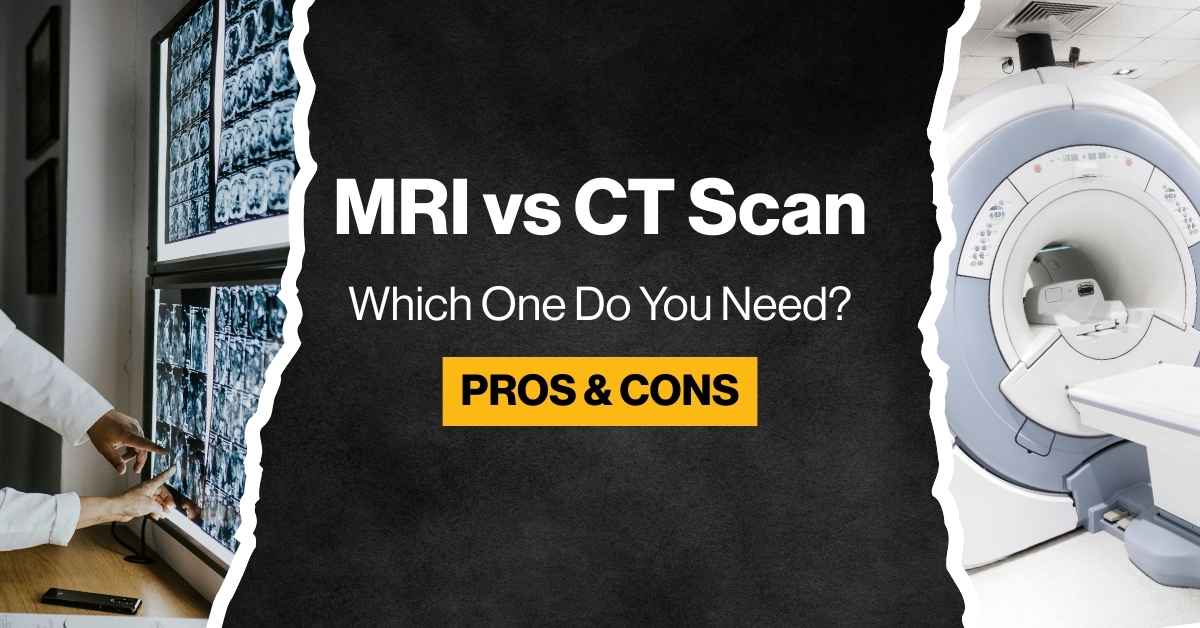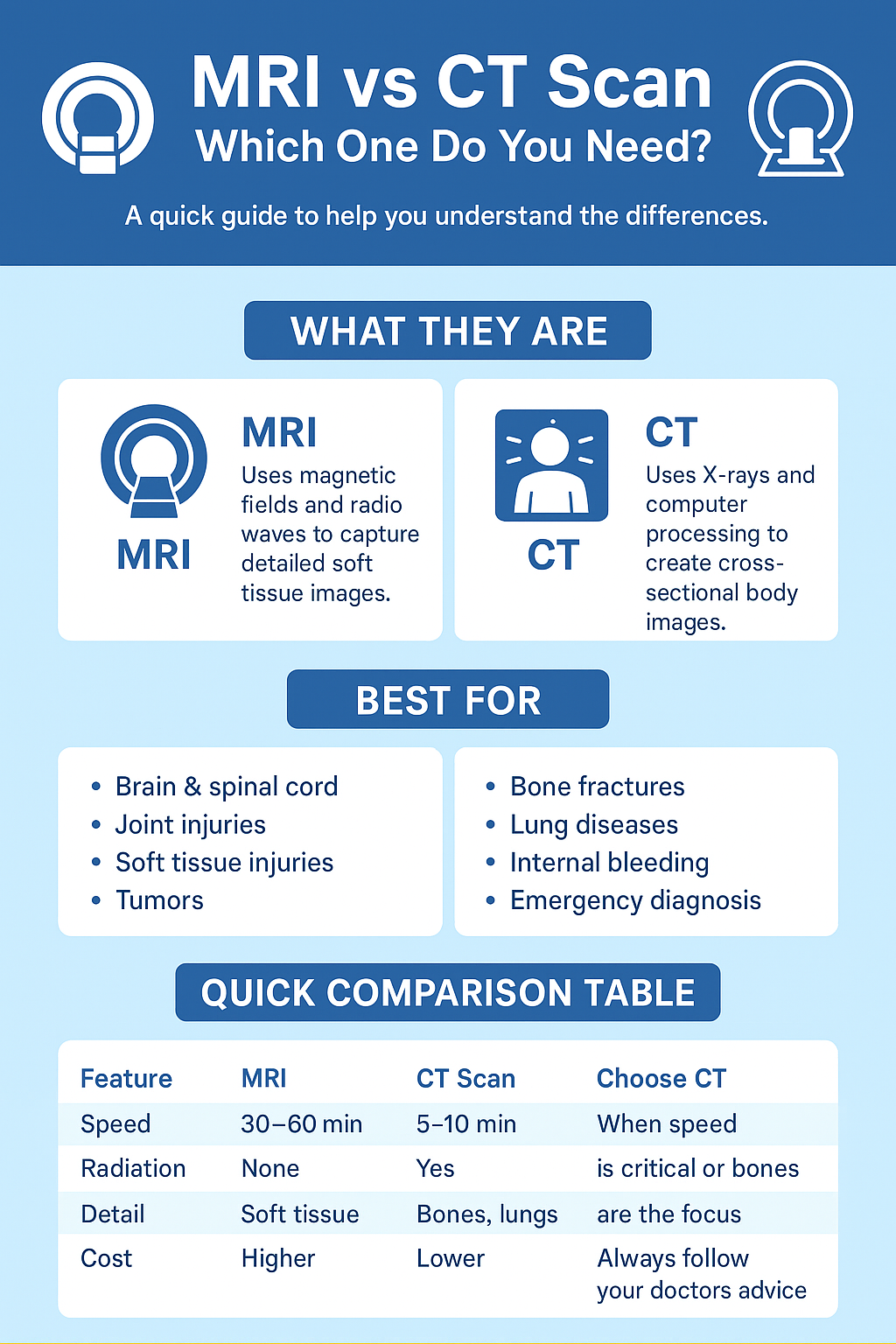
The main difference between MRI vs CT scans is that an MRI scan uses magnetic fields and radio waves to create highly detailed images of soft tissues, while a CT scan uses X-rays to capture faster, cross-sectional images, making it better for bones and emergencies. MRIs have no radiation but take longer and cost more; CT scans are quicker, involve radiation, and are generally cheaper.
Table of Contents
What is an MRI?
MRI (Magnetic Resonance Imaging) uses strong magnetic fields and radio waves to produce high-resolution images, especially of soft tissues.
Best for
- Brain and spinal cord conditions
- Joint injuries
- Soft tissue injuries
- Tumor detection
Pros
- No radiation
- Superior detail for soft tissue
- Detects early-stage conditions
Cons
- 30–60 minutes scan time
- Noisy and enclosed
- Higher price (MRI cost in Mumbai varies by type)
Also Read: Different Types of Ultrasound Scans and When You Need Them
What is a CT Scan?
CT (Computed Tomography) uses X-rays and computer processing to create cross-sectional images of the body, making it ideal for fast diagnoses.
Best for
- Bone fractures
- Lung diseases
- Internal bleeding
- Emergency cases
Pros
- Quick (5–10 minutes)
- Excellent for bones and chest imaging
- Cost-effective (CT scan cost in Mumbai is lower than MRI)
Cons
- Radiation exposure
- Less detail in soft tissues
Also Read: Things to Know Before Booking a Blood Test at Home
MRI vs CT: Quick Comparison Table
| Feature | MRI | CT Scan |
|---|---|---|
| Technology | Magnetic fields + radio waves | X-rays + computer processing |
| Best For | Soft tissue details | Bones, chest, abdomen |
| Speed | 30–60 min | 5–10 min |
| Radiation | None | Yes |
| Detail Level | Superior for soft tissues | Superior for bone/lung imaging |
| Cost | Higher (MRI cost in Mumbai) | Lower (CT scan cost in Mumbai) |
| Comfort | Enclosed, noisy | More open, shorter |
Which One Should You Choose?
- MRI: Soft tissue injuries, brain or spine issues.
- CT Scan: Bone injuries, chest or abdominal emergencies.
For advanced diagnostic imaging in Mumbai, both scans are widely available at top centers like Meesha Diagnostics. Always follow your doctor’s recommendation.

Fun Fact
If you dislike the tunnel of a traditional MRI, some centers offer open MRI — perfect for patients with claustrophobia.
Bottom Line
MRI is the detail-oriented choice; CT is the speed-focused option. Knowing the difference between MRI and CT helps you make a faster, more informed decision when your health is on the line.
Book your next CT Scan with Meesha Healthcare—trusted diagnostics, expert care, right at your doorstep. Book Now
FAQ’s
1. What is the main difference between an MRI scan vs CT scan?
An MRI scan uses strong magnets and radio waves to capture detailed images of soft tissues like the brain, spinal cord, and joints. A CT scan uses X-rays to create quick cross-sectional images, making it more effective for bone fractures, chest scans, and emergencies.
2. Which scan is better: MRI or CT scan?
Neither is “better” overall—it depends on your condition. MRI is better for soft tissue imaging such as brain, spine, and ligament issues. CT is better for bone injuries, lung diseases, and trauma cases.
3. Is an MRI scan safer than a CT scan?
Yes. MRI scans do not use radiation, making them safer for repeated use. CT scans use low-dose radiation, which is safe in most cases but generally avoided for pregnant women unless absolutely necessary.
4. How much time does an MRI or CT scan take?
An MRI scan takes 30–60 minutes depending on the body part, while a CT scan is faster, usually 5–10 minutes. Patients needing quick diagnosis in emergencies are usually recommended CT scans.
5. How do I know if I need an MRI or CT scan?
Doctors recommend the scan based on your health issue. Choose MRI for detailed soft tissue or brain evaluation, and CT for fractures, chest, or abdominal conditions. Always consult your physician before booking.